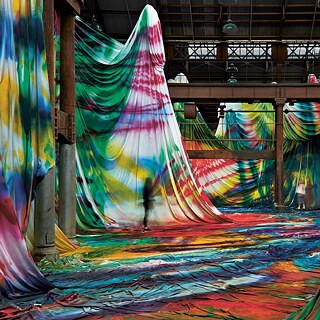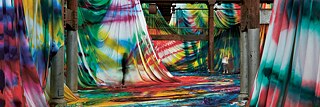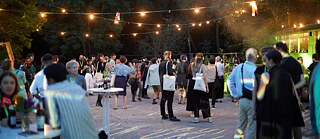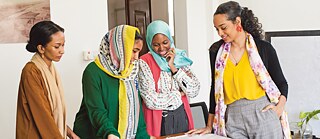Kultur


Expertise und Engagement
Bibliotheken
Die Bibliotheken der Goethe-Institute sind öffentliche Orte für Austausch und Begegnung. Unsere ca. 800.000 analogen und digitalen Medien vermitteln ein aktuelles Deutschlandbild.
Bildende Kunst
Ausstellungen, Diskussionen, Workshops – vielfältige Aktivitäten des Goethe-Instituts ermöglichen die Begegnung und Auseinandersetzung mit zeitgenössischer Kunst aus Deutschland.
Bildung und Wissen
Das Goethe-Institut setzt sich für Bildung und gesellschaftliche Diskurse ein. Wir stellen Plattformen für Kulturschaffende, Wissenschaftler*innen und Journalist*innen zur Verfügung.
Film, Fernsehen, Hörfunk
Eine Bühne für den deutschen Film – das Goethe-Institut zeigt herausragende deutsche Filme sowie TV-Produktionen und fördert innovative Hörfunk-Projekte.
Literatur
Übersetzungsförderung, Lesungen, Workshops und Residenzangebote – das Goethe-Institut baut den internationalen Literatur-Dialog aus. Wir stärken die lokalen Literaturszenen und Buchmärkte.
Musik
Unsere Mission: ein Bild vom abwechslungsreichen Musikleben in Deutschland vermitteln und den Austausch zwischen Künstler*innen im In- und Ausland initiieren. Das gilt für Profis, den Nachwuchs und Laien.
Tanz und Theater
Wir bieten internationalen und deutschen Theater- und Tanzschaffenden Austausch, Begegnung und Auseinandersetzung im Bereich der darstellenden Künste.
Veranstaltungen weltweit
Entdecken Sie Kunst- und Theaterprojekte, die zum Nachdenken anregen. Erleben Sie einzigartige Aufführungen und Reflexionen, die Kulturbrücken bauen – in Deutschland und weltweit.




